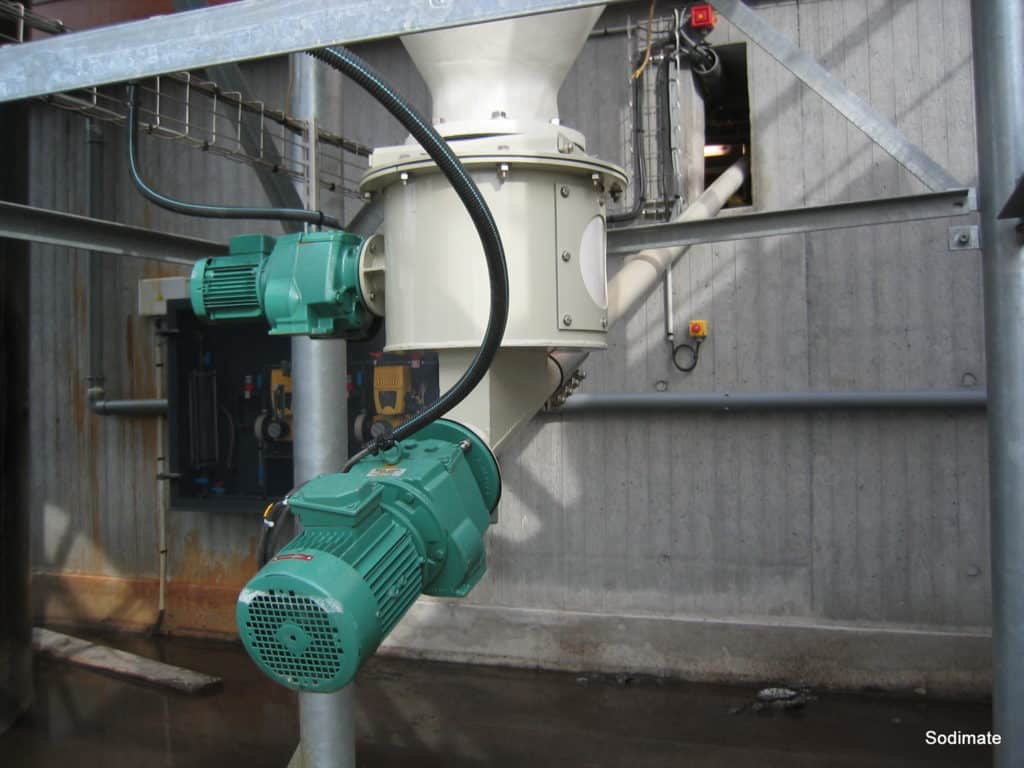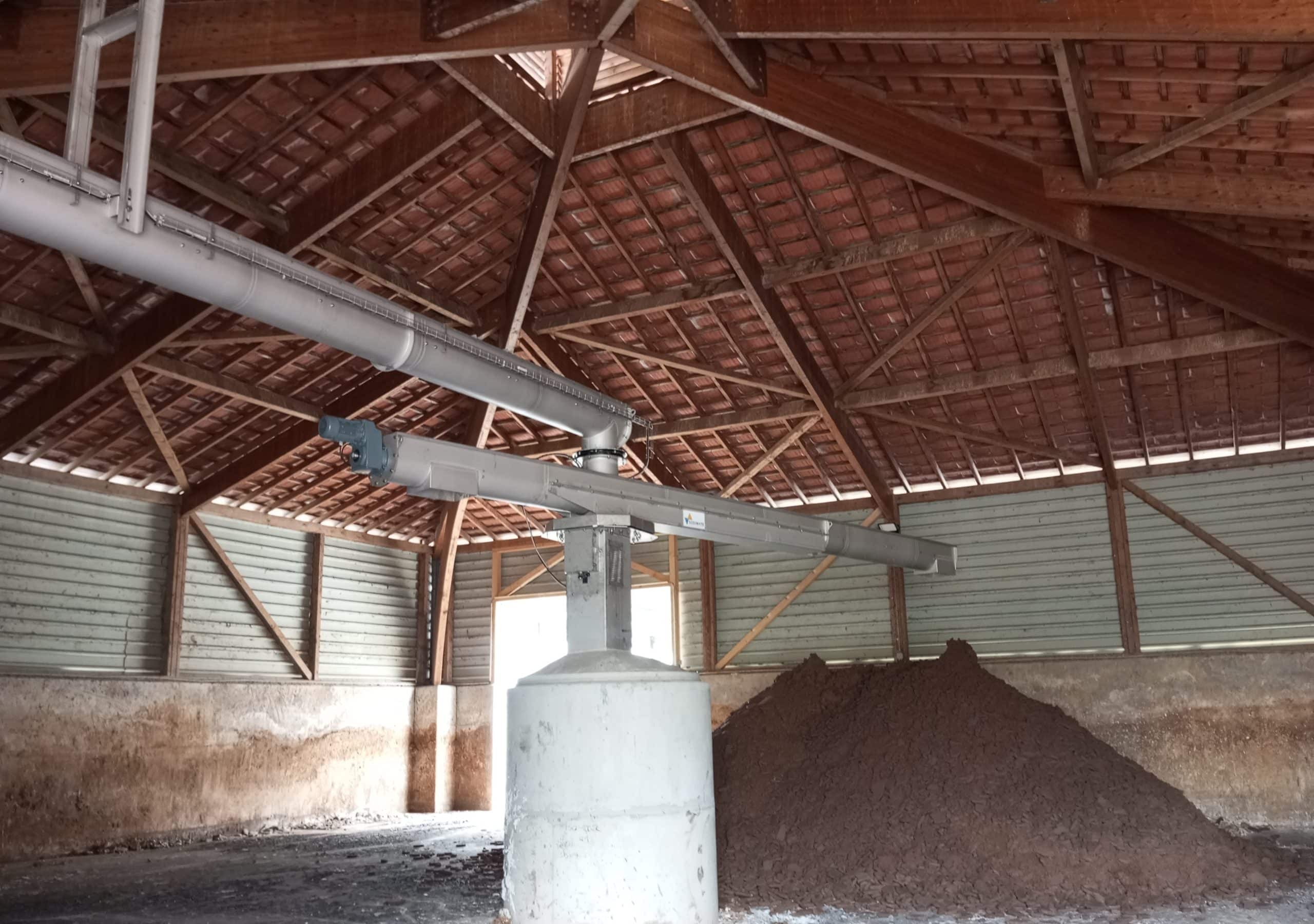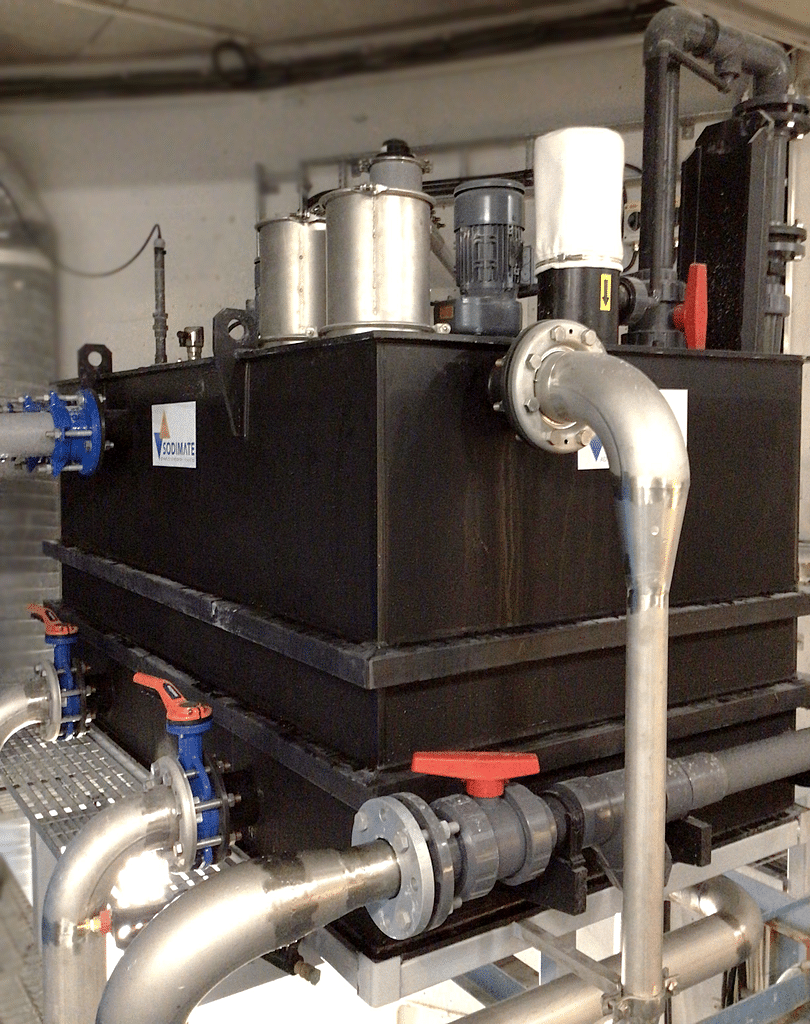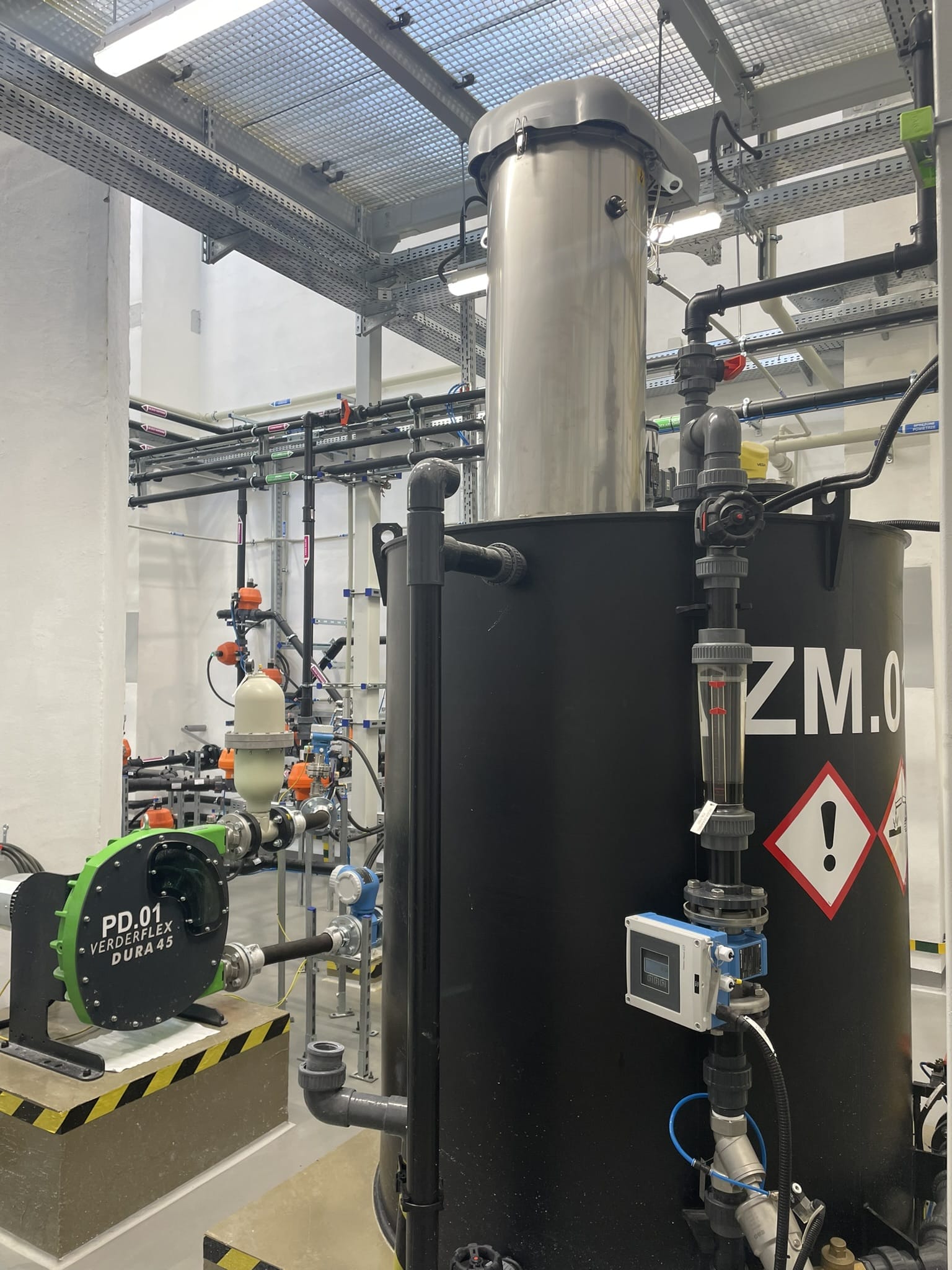Last month Sodimate contracted with one of the largest glass producers in the world. Running a 24/7 operation with 700 employees, the glass plant produces 2500 tons of flat glass per day, receives more than 200 trucks, and is capable of fabricating 20 foot by 10 foot glass sheets. Most of the fabricated glass is then transformed into windows, mirrors, or used in the car and packaging industries.
With the partnership of an engineering consultant specializing in air pollution control, specifically flue gas treatment (FGT), Sodimate supplied a complete dry chemical feed system for flue gas desulfurization (FGD) to remove sulfur dioxide (SO₂) and nitrogen oxide (NOx) from the exhaust flue gases of the fabrication plant. The FGD process use two specific dry chemicals, hydrated lime Ca(OH)₂ and Sodium Carbonate (Na₂CO₃ or Soda Ash).
The SO₂ removal process consists of :
- One 75 m3 fully equipped silo (used for dry storage)
- One Sodimate mechanical bin activator and screw feeder
- One complete pneumatic transfer connected to the volumetric screw feeder up to the flue gas injection point.
The NOx removal process consists of :
- One 75 m3 fully equipped silo (used for dry storage)
- One Sodimate mechanical bin activator and screw feeder
- One 5000 liters stainless steel slurry tank complete with agitator
- One complete slurry skid pump used to transfer slurry up to the flue gas injection point (spray nozzle)
This flue gas treatment process has been installed not only on glass producing facilities, but also on coal fire generation plants, cement plants, steel plants, waste-to-energy processes, and incinerators. All of these industries rely on Sodimate’s bulk handling systems’ efficiency and expertise to convey lime, Soda Ash, Powder Activated Carbon, Trona and any other dry chemicals for their flue gas treatment needs.
Sodimate‘s equipment design meets and exceeds new EPA standards for redundancy and precision, allowing new or existing flue gas treatment systems to be updated cost effectively.







